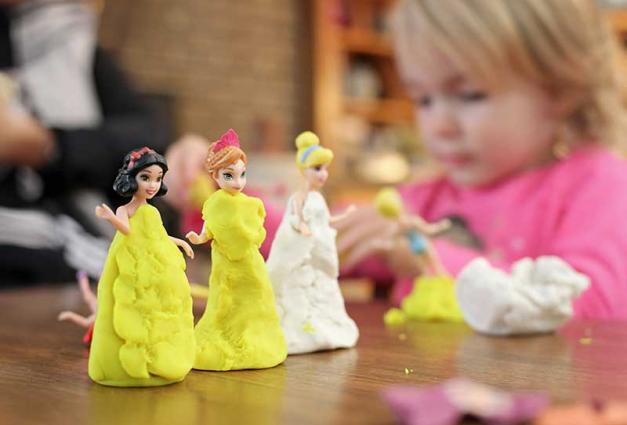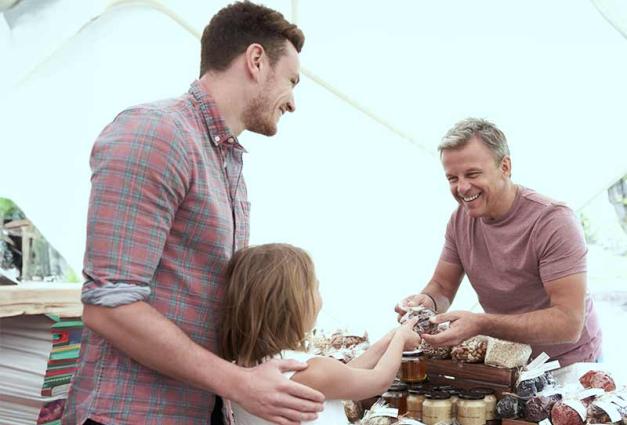Moving to a new country, or even a new city, can be a lonely experience. Somehow you begin to form social ties. Maybe you ask a new coworker to join you for coffee, or you go to a wine-tasting event, or you find locals with shared interests on social media.
However you do it, making friends and becoming integrated into the community are essential for your well-being and success in this new place. Social connectedness is one of the strongest predictors of long-term physical and mental health, and without social interaction, it will be difficult for you to adjust to the cultural norms of your new home.
So What Will It Take to Make Those New Friends?
My collaborators and I asked this question. For starters, you must be willing and able to explore new places and meet new people. But those people will probably be different from you in many ways—they may not share your cultural references, your social norms, your values, or even your native language. So you will have to adapt to and tolerate those differences.
The ability to connect with strangers, tolerate their differences, and bridge divides are learned skills. Some people have had more opportunities, or more need, to build these skills than others. Think of a child growing up in a military family that moves every year or two. The child must be open to others despite differences and learn strategies to quickly make new friends in each new place, or else be perpetually lonely.
We wondered whether the place you're coming from might matter for your ability to make friends in a new place. Some cultures may prepare people better than others for the challenging task of becoming connected in a new community. Does the cultural diversity of your population of origin (where you're coming from) predict your ability to become well-connected when you move to a new place?
We reasoned that growing up and learning social norms in a population that is highly diverse teaches you to become friends with people who are different from you. Populations that are culturally diverse also tend to be high in relational mobility, meaning social ties are looser and friends come and go. Experiencing more social network "churn" throughout your life might prepare you to build a social network from scratch when you move to a new city or country.
Universities are an ideal setting to test these ideas. Students come from all over the world and quickly form new social networks. And it just so happened that we had data from eight entering classes of Master of Business Administration (MBA) students (2,257 students) at a U.S. university. We knew where the students came from and we knew who they became friends with in the MBA program, so we could calculate their social connectedness to their new community.
We described the cultural diversity of where the students came from in two ways: in terms of their location's historical cultural diversity and present-day cultural diversity. For the American students, we estimated the diversity of their home county, and for the international students, we estimated the diversity of their home nation.
For instance, to compute the historical cultural diversity of an international student from Brazil, we used estimates of how many different ethnic/national groups (and how many people from each group) immigrated to Brazil over the last 500 years. Higher scores for historical diversity mean that many people immigrated from many places to produce the country's present-day population. Brazil happens to be high on this measure, while Norway, for instance, is low. Most people living in Norway descend from people who also lived in Norway 500 years ago.
In line with our speculations, we found MBA students from more culturally diverse places became better connected to their MBA peers. This held for three of our four measures of cultural diversity: U.S. county-level historical diversity, nation-level historical diversity, and nation-level present-day diversity.
This suggests that growing up in a culturally diverse place prepares you to make friends in a new environment with new and diverse people. But this does not mean that people from places lower in cultural diversity are doomed to loneliness should they relocate—the effect of cultural background on social connectedness is small, and many other factors contribute to your ultimate social network, including your motivation to network, your personality, and random chance.
We think the social flexibility needed to make new friends is a learned skill that you can strengthen by forming meaningful bonds with people from different backgrounds or by living in different places. You might be surprised by how it changes you.
For Further Reading
Wood, A., Kleinbaum, A. M., & Wheatley, T. (2023). Cultural diversity broadens social networks. Journal of Personality and Social Psychology, 124(1), 109–122.
https://doi.org/10.1037/pspi0000395
Niedenthal, P. M., Rychlowska, M., Wood, A., & Zhao, F. (2018). Heterogeneity of long-history migration predicts smiling, laughter and positive emotion across the globe and within the United States. PLoS ONE 13(8): e0197651. https://doi.org/10.1371/journal.pone.0197651
Yakunina, E. S., Weigold, I. K., Weigold, A., Hercegovac, S., & Elsayed, N. (2012). The multicultural personality: Does it predict international students' openness to diversity and adjustment? International Journal of Intercultural Relations, 36(4), 533-540. https://doi.org/10.1016/j.ijintrel.2011.12.008
Yuki, M., & Schug, J. (2020). Psychological consequences of relational mobility. Current Opinion in Psychology, 32, 129–132. https://doi.org/10.1016/j.copsyc.2019.07.029
Adrienne Wood is an Assistant Professor of Psychology at the University of Virginia. She studies how people communicate and connect.




